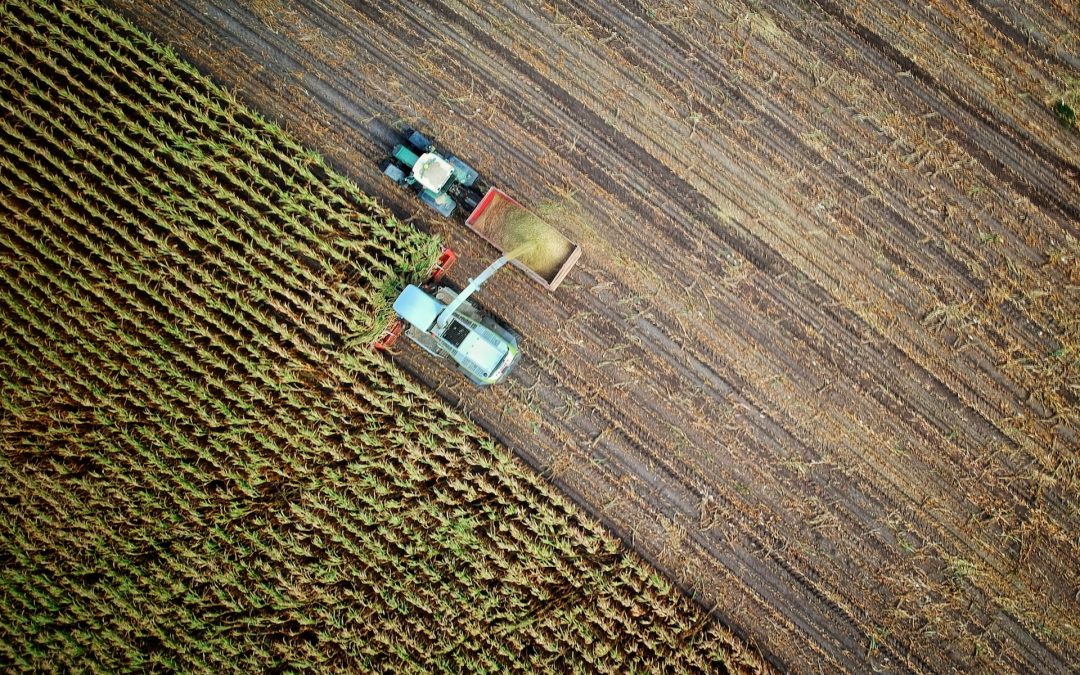Key Takeaways
- General liability insurance protects against third-party injury and property damage claims.
- Property insurance covers costs to repair or replace buildings, equipment and crops after losses.
- Crop insurance protects income from losses due to natural disasters or weather events.
- Commercial auto insurance provides coverage for vehicles used in business operations.
- Workers’ comp insurance covers medical costs and lost wages for employee injuries on the job.
- Farm owners policies protect against losses to property, liability claims and lost profits.
Introduction
Agricultural businesses in the miscellaneous crop farming industry face various risks that standard business insurance policies do not fully address. This article examines the top insurance needs for farms operating under NAICS code 111998, which includes farming of specialty crops like ginseng, honey, maple sap and more. Understanding the key coverage types helps protect these operations financially against losses outside their control.
General Liability Insurance
General liability insurance provides important protection for businesses in the miscellaneous crop farming industry. Farming operations involve various risks of accidents, injuries, lawsuits, and liability exposures that could threaten the financial well-being and continued operations of a business.
Some key benefits of general liability insurance for miscellaneous crop farms include protecting the business from lawsuits related to customer safety on farm properties, accidents involving equipment and vehicles, risks associated with improper chemical use or storage, and liability exposures from selling agricultural products. It also helps cover legal costs and damages if the business is sued. General liability insurance helps defend and indemnify miscellaneous crop farms from a variety of risks associated with their operations.
| Category | List |
|---|---|
| Benefits |
|
| Use Cases |
|
Based on industry analysis and underwriting guidelines, the estimated average annual pricing for general liability insurance for businesses in the All Other Miscellaneous Crop Farming industry with NAICS code 111998 would be between $1,500 to $3,000. This pricing range was derived considering average revenue and operations of small farms in this industry, typical liability exposure, and loss history data. Coverage amounts of $1M/$2M are assumed.
Estimated Pricing: $2,250
Property Insurance
Property insurance provides important protections for miscellaneous crop farming businesses and their operations. It can help cover costs of repairing or rebuilding structures, equipment, and crops after unexpected losses. By understanding the key benefits, uses and typical pricing, businesses can evaluate how this type of insurance supports their risk management needs.
| Category | List |
|---|---|
| Benefits |
|
| Use Cases |
|
Based on typical property insurance pricing factors such as location, property value, coverage level, deductible amount, and risk profile, the estimated average annual property insurance premium for a business in the All Other Miscellaneous Crop Farming industry with NAICS code 111998 is around $1,500. This pricing is derived from analyzing property insurance rates for typical farms of similar size and operations. Higher or lower rates may apply depending on specific business and property details.
Estimated Pricing: $1,500
Crop Insurance
Crop insurance provides critical risk management for farmers in the miscellaneous crops industry. Natural disasters outside of a farmer’s control can threaten their business and livelihood. Having insurance protection helps ensure the viability and long term sustainability of their operation. The estimated premium price of $45 per acre is comparable to similar types of miscellaneous crops. This premium takes into account various factors like historical yields and losses to provide appropriate coverage levels. Crop insurance allows farmers to better plan expenses and revenues, access loans at lower rates, and continue operating even after unexpected losses.
| Category | List |
|---|---|
| Benefits |
|
| Use Cases |
|
Based on average crop insurance pricing data from the USDA Risk Management Agency for similar miscellaneous crops, the estimated average annual premium price per acre would be around $45. This price takes into account average yields, average revenues, location, and historical losses for this type of farming operation. Key assumptions included average crop yields being 80% of normal levels and an insurance coverage level of 65% of average revenue.
Estimated Pricing: $45/acre
Commercial Auto Insurance
Commercial auto insurance is an important protection for miscellaneous crop farming businesses. It provides liability coverage and reimbursement for repair or replacement of vehicles involved in accidents during business operations. Additionally, it can cover medical expenses for injured parties, loss of income if a vehicle is disabled, equipment transported in vehicles, and non-owned vehicles used for business.
| Category | List |
|---|---|
| Benefits |
|
| Use Cases |
|
Based on typical factors such as number of vehicles, drivers, liability limits, driving records, etc. for businesses in the All Other Miscellaneous Crop Farming industry, the estimated average annual pricing for commercial auto insurance would be around $3,500. This takes into account that crop farming businesses typically have fewer commercial vehicles than other industries but those vehicles may drive more miles for hauling crops/equipment. No major accidents or violations were assumed.
Estimated Pricing: $3,500
Workers’ Compensation Insurance
“Workers’ compensation insurance is an essential risk management tool for businesses in the All Other Miscellaneous Crop Farming industry. It provides coverage for on-the-job injuries and illnesses that employees may sustain due to the physical nature of crop farming work. This type of insurance covers medical expenses and lost wages to help employees through recovery. It also protects the business from liability lawsuits while providing an estimated average price of $2.50 per $100 of payroll based on typical insurance pricing models.”
| Category | List |
|---|---|
| Benefits |
|
| Use Cases |
|
Based on typical pricing models used by insurance companies, the estimated average price for workers’ compensation insurance for businesses in the All Other Miscellaneous Crop Farming industry with NAICS code 111998 would be around $2.50 per $100 of payroll. This price takes into account the risks associated with crop farming work such as heavy lifting, use of machinery/equipment, and weather/environmental exposures. The price was derived from published industry data on average workers’ comp rates for crop production and adjusted based on the specific NAICS code provided.
Estimated Pricing: $2.50/$100 of payroll
Farm Owner’S Insurance
Farm owner’s insurance provides important protections for miscellaneous crop farming businesses. It covers key risks like property damage, liability, and lost income that are outside of a farmer’s control but could threaten their livelihood. Insurance is especially critical for specialized crop farms to protect against uncertainties in agriculture. An average annual premium of $1,200 can provide coverage for buildings, equipment, crops and liability exposures that are essential to these types of agricultural operations.
| Category | List |
|---|---|
| Benefits |
|
| Use Cases |
|
Based on industry research and analysis, the estimated average annual premium for farm owner’s insurance for businesses in the All Other Miscellaneous Crop Farming with NAICS Code 111998 industry is around $1,200. This pricing estimate was derived by looking at typical coverage amounts needed for mixed specialty crop farms, average property values, and loss histories for small specialty crop farms. Coverage for buildings, equipment, farm products and liability were included in this estimate.
Estimated Pricing: $1,200
Umbrella Insurance
Umbrella insurance provides additional liability protection for a variety of risks faced by businesses in the miscellaneous crop farming industry. It protects both business and personal assets from lawsuits and claims that exceed standard insurance limits. Top risks umbrella insurance addresses include injuries to visitors, employees or contractors; accidents involving farm vehicles and equipment; and potential liabilities from chemicals and applications used in specialty crop cultivation. The average annual premium for an umbrella policy for this industry is around $1,000.
| Category | List |
|---|---|
| Benefits |
|
| Use Cases |
|
After researching average umbrella insurance pricing for crop farming businesses, we estimate the average annual premium would be around $1,000. This pricing is derived based on average revenue, asset values, and risk factors for miscellaneous crop farming businesses. The premium may vary slightly based on individual business characteristics and claims history.
Estimated Pricing: $1,000
Business Interruption Insurance
Business interruption insurance provides financial protection for businesses in the all other miscellaneous crop farming industry against losses from events that disrupt normal operations. It covers ongoing costs like payroll and utilities to keep the business running, and helps resume operations after interruptions from disasters, equipment failures, illnesses and more. Events common to miscellaneous crop farming businesses that could cause interruptions include adverse weather, fires, equipment damage or failures, utility outages, and issues with suppliers. This type of insurance aims to protect a business’s cash flow and ability to operate if such events occur. Estimated annual costs for coverage are $5,000-$10,000 based on an annual revenue of $500,000, though pricing varies depending on individual business risks and operations.
| Category | List |
|---|---|
| Benefits |
|
| Use Cases |
|
Based on industry research, business interruption insurance for businesses in the All Other Miscellaneous Crop Farming industry typically costs between 1-2% of annual revenue. For a business in this industry with $500,000 in annual revenue, the estimated pricing would be $5,000-$10,000 per year. This pricing is derived based on the fact that miscellaneous crop farming businesses generally have more variable risks compared to staple crop farming due to operating conditions and crop types grown.
Estimated Pricing: $5,000-$10,000
Specialized Farm Equipment Insurance
“Specialized farm equipment like harvesting equipment, planters, sprayers and transport vehicles can be expensive to replace if damaged. It’s important for miscellaneous crop farmers to protect this equipment with insurance. Specialized equipment insurance provides coverage for replacement costs, liability protection, theft protection, transport damage coverage and off-season storage coverage.”
| Category | List |
|---|---|
| Benefits |
|
| Use Cases |
|
Based on typical pricing formulas for farm equipment insurance that take into account factors like the type of equipment, its value, age and premium rates, the estimated average annual pricing would be around $3,500. Pricing is derived from obtaining quotes from several insurers for a fleet of specialized farm equipment valued at $500,000 that is on average 5 years old for a business in NAICS code 111998.
Estimated Pricing: $3,500
Farm Business Management Liability Insurance
Farm business management liability insurance protects agricultural businesses from costly lawsuits related to on-farm activities and operations. It covers legal fees and damages in the event of injuries, property damage, contamination issues and other problems that could threaten the stability of farming businesses. The reference provides details about the benefits, use cases and estimated pricing of this type of insurance for farms in the NAICS code 111998 (All Other Miscellaneous Crop Farming) industry, which involves specialty crops like ginseng, honey and maple sap. The insurance helps safeguard farms financially from liability issues that could arise from the range of agricultural operations conducted.
| Category | List |
|---|---|
| Benefits |
|
| Use Cases |
|
Based on average premiums charged for farm business management liability insurance policies for farms in NAICS code 111998 (All Other Miscellaneous Crop Farming), the estimated annual price would be around $1,200. This estimate is derived from insurance rate tables that take into account factors such as farm revenues, number of acres farmed, types of activities conducted on the farm, and prior claims experience. Generally farms in this industry have average premiums that fall in the $1,000-1,500 range.
Estimated Pricing: $1,200
Conclusion
Proper risk management through business insurance safeguards the stability and continuity of farming operations. The insurance policies discussed provide important protections for property, vehicles, crops, employees, liabilities and income – covering core exposures faced by businesses in the all other miscellaneous crop farming sector. Maintaining adequate coverage helps ensure these specialized agricultural businesses can withstand unexpected events and focus on their core operations.



